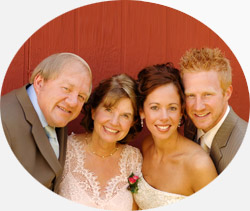
By: Zachary Lee
This morning I was watching CBS Sunday Morning and they were talking about generational differences in the workplace and how it affects workforce dynamics. The main focus of the story was about millennials and how they tend to be the most narcissistic generation yet (I’m a millennial as well so this story pertained to me).
Millennials are now the biggest part of the American workforce, according to a Pew Research study. So just as The Greatest Generation moved over for their sons and daughters (Baby Boomers), Baby Boomers and Generation X’ers are moving over for Millennials. (1)
As we begin to see more millennials move into higher positions of power in organizations one of the challenges that millennials need to be careful of is believing that we are right and the baby boomer generation doesn’t know what they’re talking about. The old adage of out with the old and in with the new simply doesn’t work and it will cost your organization a ton of money of you have a culture that gets this wrong.
Three primary concerns that I see for your organization are:
1) Negative Culture: before I started LifeWorks Group I worked for an organization that had a large mixture of baby boomers and millennials working together. One of the biggest challenges I saw within our team was how many millennials were disrespectful to the baby boomers and vice versa. Many millennials saw the baby boomers as slow and unwilling to change to new ideas. On the other side many baby boomers saw the millennials as cocky and unreliable.
The challenge this created was that it pinned people against each other in the workplace. Instead of the team being as inviting as it could be, it had pockets of people who wouldn’t want to work with others, etc.
In your workplace there are always going to be people who naturally become better friends than others. However, it’s imperative that you don’t let your team turn into the high school lunch room where some sort of segregation is taking place between the generations.
2) Inefficient Workforce: when you have segregation within your workforce there is a good chance you aren’t being as productive as you could be. In other words, the more separation there is because of generational differences the more it’s going to affect your bottomline because you don’t have synergy. Your best ideas aren’t always rising to the top because there isn’t support of the idea due to where it came from. In order to have synergy, you have to have young and old working together.
3) Zero Implementation: it’s one thing to preach a culture of diversity, openness and cohesiveness. It’s another to live it out as an organization. Just because you preach an inclusive culture to your organization it doesn’t mean it’s going to be put into action unless you provide the roadmap to do so. This roadmap also isn’t a quick fix – it’s an ongoing process of learning, tweaking and directing. It also needs to be a message that is not just a top-down approach. It’s a culture that is lived and breathed with all leadership within the organization – executives, mid-level managers and new hires that have explained the importance of inclusion, respect and building relationships with the entire team.
A prime example of millennial narcissism and how I’ve gotten this wrong in my own company is with my father; I’ve have had to learn the hard way. My father and I have an equal partnership that we started over five years ago. One of the hardest educational experiences along the way has been getting over myself and realizing that my dads “old way of thinking” was in fact not wrong. I spent too much time thinking it was time that this old dog learned some new tricks. The fact is, I was the one who had it wrong and have been lucky enough to have a strong business mentor who also gave me the benefit of the doubt because I was his son.
Most people aren’t so lucky. Because most people don’t own their own business and most people also don’t work with their father.
The challenge for myself as our company has grown has not been always taking my dads advice and business direction seriously. For millennials like myself – that baby boomer advice is called wisdom. Wisdom which they have a lot more of than we do. Although some baby boomers might not think the way we do or be as technologically savvy as millennials it doesn’t mean they still don’t have fantastic business acumen and insight into their respective marketplaces.
As we’ve continued to expand our business one of the biggest fights has been how we would do so. Would we move forward with using mostly a technological approach (webinars, tele-conferences, etc.) or would we use the approach of meeting in person with future clients? The answer… both. My dad and I are both right. We need to integrate the advantages of using technology to our advantage for outreach, training and building awareness. But we also need to continue to incorporate and celebrate meeting with our clientele in person to build personal relationships because the majority of our clientele are baby boomers.
Seth Mattison, founder of FutureSite Labs says that it’s important for millennials to remember if you are working with a Baby Boomer and they are more comfortable with a phone call or a face-to-face sit-down – that we need to not only respect that, we need to do it. Just because we (millennials) might find it easier, quicker, or more convenient to conduct business another way (i.e, instant messaging, email, texting, etc.) we need to respect who was there before us and respect the history that they have with the organization. (2)
Obviously this type of respect and understanding has to go both ways in the workplace. Not only do millennials need to respect their elders, but baby boomers also have to be open to the constant changing in our world today.
Finding a happy medium in your organization where there is not only respect and understanding for all generations, but also an openness to enter into projects with a clear understanding that both generations bring a unique perspective and advantage to producing the best results, is the best place to start.
Citations:
(1) Richard Fry, “Millennials surpass Gen Xers as the largest generation in U.S. labor force, May 11, 2015. http://www.pewresearch.org/fact-tank/2015/05/11/millennials-surpass-gen-xers-as-the-largest-generation-in-u-s-labor-force/




 LifeWorks was founded in 2004, and currently serves couples throughout Minnesota, North Dakota, and South Dakota. We partner with churches and organizations to offer both pre-marriage and marriage enrichment retreats for couples.
LifeWorks was founded in 2004, and currently serves couples throughout Minnesota, North Dakota, and South Dakota. We partner with churches and organizations to offer both pre-marriage and marriage enrichment retreats for couples.

